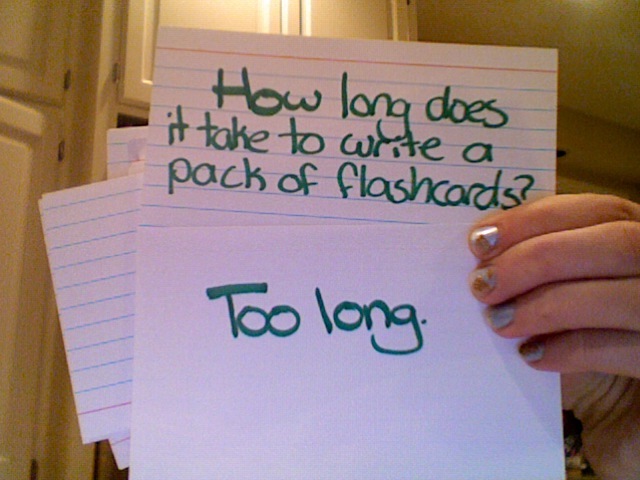The newspaper has been planning this catastrophic Week Without Technology for a long time. In fact, we’ve had it on our docket since last year (i.e. late December). We decided that after we survived the Mayan scare unscathed, we needed another apocalyptic date hanging over our heads to hike up our blood pressure, so we picked our victims and scheduled five days of old-school inconveniences for Jan. 14-18.
Having known the nature of my doom for about a month, I could have planned ahead. I could have said to myself, “Katie, I know you make copious amounts of flash cards on your phone, but since your next big English vocab test is going to be on the Friday of the Week Without Technology, why don’t make some cards the old-fashioned way so you can study next week?”
But I didn’t plan ahead. Instead, I have forty-something digital flash cards of words and definitions stored on a cell phone that I’m not allowed to use.
That was time well spent.
I might have gone ahead and used them without telling you if I hadn’t purposefully allowed my phone to die in case I felt the temptation to cheat on my pledge to forego the use of apps. I also hid my phone charger from myself while I was too exhausted to remember the hiding place. (Apparently, I do sometimes plan ahead–just not at the right times.)
Without my electronic study aids, I was forced to ask an impossible question: How did our ancestors make flash cards when there was no such thing as a flash card app?
The answer, it seems, is that they laboriously wrote out each and every word on thick slips of dead trees. Then, after their hands were thoroughly cramped and their pens had run out of ink, they flipped the cards by hand, realizing that they had written about three-quarters of them either upside-down or backwards.
As a pre-app dinosaur might have put it: “Confound it!”














